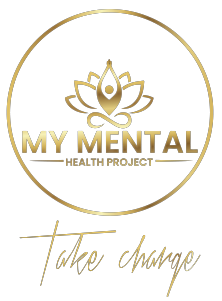Even today, in many countries, the postnatal period is a time for family bonding and mothers’ healing, with others helping the family during this new experience. Several societies have transitional support systems in place for at least one month after childbirth. Some civilizations do not view this phase as a luxury, but rather as an essential aspect of the Mum’s recovery. However, the ramifications of modern society have meant that only a fortunate few woman have access to this support network, leaving many women and their families to struggle through what should be a time of joy, bonding and healing. I am one of these fortunate ladies who has made modest growth in IT sector. The fact that I was a mother twice did not prevent me from sometimes being the lone woman in the executive suite of a corporation. This is because I was culturally fortunate enough to have a pleasant recovery and not have to take a significant career break or delay career advancement due to parenthood.
Thus, I am enthusiastic about this idea. I want to provide my sisters and fellow mothers with the same opportunities I was given. We at MMHP have developed a service that combines old Indian Perinatal wisdom with ancient and modern therapeutic care for mothers in Australia. We present to you “Daikamirr” an amalgamation of A djäkamirr (an Indigenous Doula- childbirth companion) and Dai (The Dai, or traditional birth attendant (TBA), remains the primary health care provider during pregnancy and childbirth in much of rural India)
One in five mothers and one in ten fathers experience postpartum depression. Postpartum depression is characterized by low mood, disturbed sleep and appetite, and despondency. Postnatal depression lasts longer, is more severe, and requires treatment. Your doctor or nurse can recommend assistance and therapy. Ask for support. Postnatal depression is common, so don’t be ashamed to obtain help.
At My Mental Health Project, we are all about preventive health care. We believe providing support and care to new parents at their own home is imperative to good mental and physical wellbeing of the parents as well as the children. Amalgamating ancient wisdom of Prasava Raksha with modern day midwifery and healthy childcare practice we have developed our Daikamirr training program. Research shows that women who received care during in the post-natal period but not necessarily during pregnancy, had a 64.7% lower risk of developing Post Natal Anxiety and Post Natal depression. Daikamirr can improve your health. Daikamirr care for mum, dad as well as baby. Daikamirr priorities education, hydration, nutrition, and sleep, which can have huge health advantages for parents.
5 health benefits of Daikamirr Project!
-Relaxation.
The initial weeks of parenthood are fraught with apprehension, anxiety, and worry. New parents leave the hospital feeling overwhelmed and unsure how to care for their infant. These emotions raise anxiety and blood pressure. Postpartum doulas help parents feel at ease and supported during all of the newborn’s initial moments. Mindfulness training and directed Meditation, massage, abdominal binding and therapy, help with domestic or other parental chores and Herbal Recovery diet helps the journey towards recovery.
-Helps Enjoy Parenthood.
Daikamirr can help you recuperate after birth. Daikamirr will listen and help you talk about your delivery, even if your family and friends can’t. Daikamirr can help you process your birth story. Expressing emotions in a safe environment reduces anxiety and increases the calming hormone oxytocin. Post pregnancy kids including aroma therapy, sleep routines for mothers and babies and support with everything that helps settling into the new role and life is the service we provide.
-Decision-making assurance.
Baby-wearing, co-sleeping, breastfeeding challenges, swaddling, feeding routines—newborns have many alternatives. Daikamirr can help you make decisions and build confidence in them, but they cannot give medical advice. They are able to detect deviations from normal and provide adequate referrals and even work with midwives to provide you planned care. Even with baby pandemonium, confidence for both parents creates a calmer home. Instead of spending hours researching on Google, consult with your Daikamirr.
-Support right in the comfort of home.
After hospitalization, parents require emotional and physical support. Many individuals neglect the postpartum phase, which is crucial. Returning home brings sleepless nights, feeding schedule challenges, concerns, and uncertainty. Daikamirr support new parents.
After birth, everyone adjusts. Helping with daytime naps is extremely helpful. making healthy snacks, washing baby laundry, walking the dog, or taking a nighttime rest. Support is invaluable. Knowing someone is watching out for your family and supporting you helps relieve the strain of this new normal.
Improves Postpartum Depression, Anxiety,
Exhausted, solitary mothers often fall into melancholy or anxiety. Daikamirr reduces this risk by fostering the mother’s sense of connection and care!
The mother will sleep and feel better. Time for self-care is available. She has time to express herself, good and bad. This can sometimes prevent postpartum depression. Postpartum doulas can refer mothers with postpartum depression to other health experts. The postpartum doula ensures that the mother receives professional medical care.
Our Daikamirr is trained to provide cultural, emotional, and spiritual support to Australian women after childbirth. Our Daikamirr is responsible for your care, which includes therapeutic recovery-focused massages, abdominal binding, baby care tips, new mum packages equip and automate to make life easier, post-pregnancy self-care tips, sleep pattern setting, improving bonding and forming a routine, meditation, exercise, breast feeding, therapeutic recovery-focused diet, Therapeutic Bath, and assistance with other aspects of your family that require handholding. Providing you with practical and emotional support and boosting your self-esteem to facilitate your adjustment to the new family dynamics.











